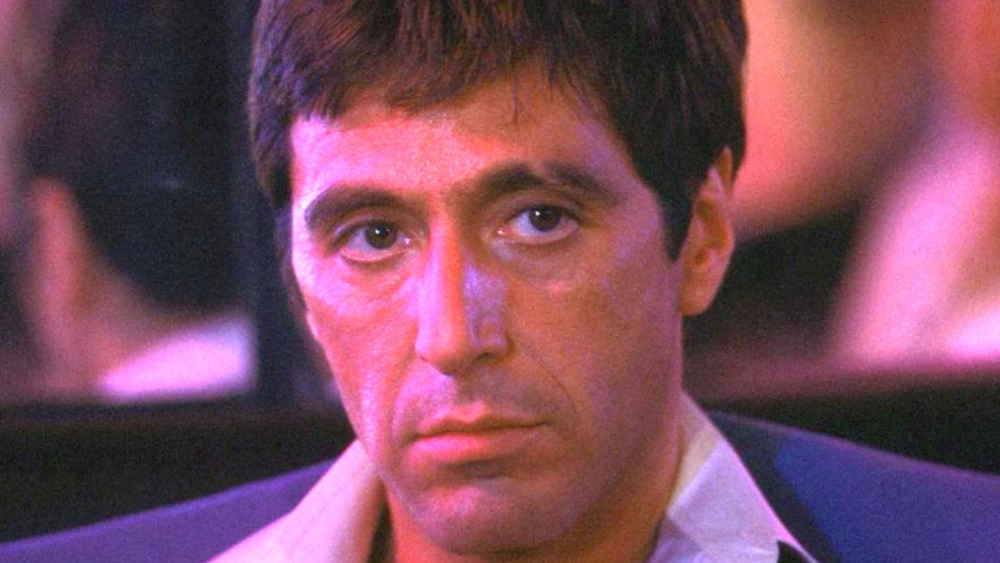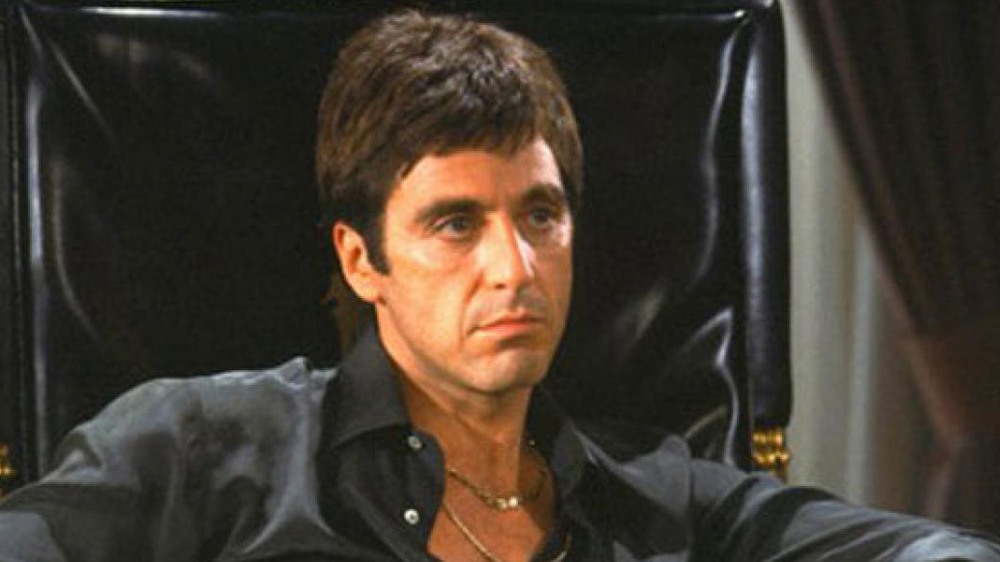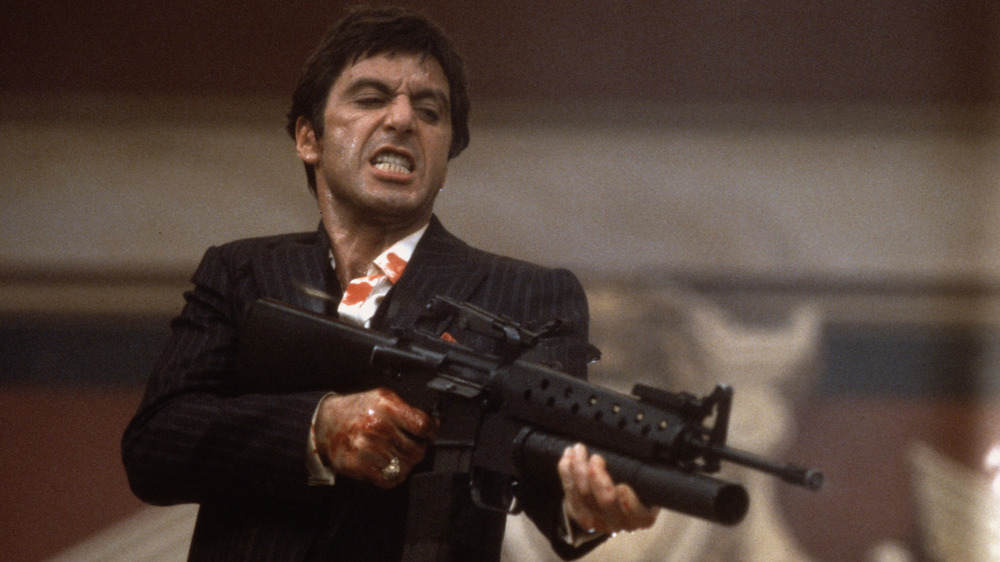The Ending Of Scarface Explained
Despite being a remake, 1983's Scarface remains one of the most iconic pieces of American crime cinema. The story of Tony Montana — famously portrayed by Al Pacino — and his rise to glory has cemented itself in the public's pop culture consciousness even to this day. You'd be hard-pressed to find a person who has never heard the line, "Say hello to my little friend."
At the time of its release, however, Scarface was a fairly controversial film. Criticism of the movie focused on the ways in which it glorified violence and drugs in a senseless manner. It was even one of the few films of the era that received an X rating until director Brian De Palma appealed to the Motion Picture Association of America and won. The movie may be bloody and excessive, but Scarface's ending shows that being a violent gangster and leading a life of crime is devoid of all real value.
The Tony Montana character is great because he is a failure
Part of what makes Tony Montana's character so iconic is that his story ends in tragic failure. Though he reached the heights of fortune and infamy during his short time in America, he meets a very swift and brutal ending during Scarface's conclusion.
Unlike other protagonists, who might learn a lesson during their journey that ends in victory, Tony Montana ultimately ignores the moral of his story. His inflated ego and ruthlessness brought him money and power, but it also cost him his life. First, his selfish actions cause him to lose or betray his closest loved ones. Then, when he continually double-crosses major drug kingpins from Miami and elsewhere, Tony inadvertently guarantees his own demise.
Even as an army of thugs storm his estate, Tony stubbornly refuses to give up. He fights until he can no longer hold his gun, at which point he simply refuses to let a bullet put him down. It takes a sneaky shotgun blast from behind to finally kill Tony Montana. As his body falls, De Palma's camera shows a decorative globe bearing the phrase, "The world is yours." The irony that Tony Montana's downfall was as swift and unexpected as his rise is palpable.
At its heart, Scarface is about pride
The lesson that Tony Montana refused to learn is that pride is his biggest weakness. One of the elements that made the character so popular is that Tony doesn't take anything from anyone. He has his own way of doing things, and he won't sacrifice that for anything.
In the short term, Tony's pride pushes him to the limits of success. He could never have sealed a lucrative deal with powerful cartels if he didn't have the mettle to go behind his boss' back along the way. In the long term, however, it made him many enemies and cut him off from all of his allies. In the space of a few years, Tony is disowned by his mother, loses his wife, and kills his best friend. At the end of the story, when the cartel guns down his sister, the last of Tony's support is gone.
By the time the credits roll in Scarface, audiences are left to wonder what could have been. It is undoubtedly true that Tony had the drive and potential to succeed wherever he chose to apply himself. Had he not recklessly betrayed his own family and the powerful gangsters he worked with, he could've been someone truly great. Instead, his persistent pride earned him a gruesome death.


